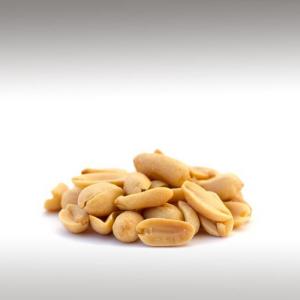
PEANUT OIL (ARACHIS HYPOGAEA) - BASE OILS

BASE / GENERAL DATA
Information submited: September 29, 2014 Modified: May 9, 2018 By: OperaDreamhouse
The Peanut or Groundnut or Arachis oil (Arachis Hypogaea) is a species in the legume or "Bean" family (Fabaceae). The Peanut was probably first domesticated and cultivated in the valleys of Paraguay. It is an annual herbaceous plant growing 30 to 50 cm tall.
The specific name, Hypogaea means "Under the Earth"; after pollination, the flower stalk elongates, causing it to bend until the ovary touches the ground. Continued stalk growth then pushes the ovary underground where the mature fruit develops into a legume pod. Pods are 3 to 7 cm long, containing 1 to 4 seeds.
Because, in botanical terms, "nut" specifically refers to indehiscent fruit, the Peanut is not actually a nut, but rather a legume. Peanuts grow best in light, sandy loam soil. They require five months of warm weather.
Peanut oil has a pleasing and sometimes light nutty flavor. In addition to its great taste. Sweet, and flavorful Peanut oil is organic edible oil obtained from pressing Peanut kernels.
Its major componentfatty acids are oleic acid (46,8% as olein), linoleic acid (33,4% as linolein), and palmitic acid (10,0% as palmitin). The oil also contains some stearic acid, arachidic acid, arachidonic acid, behenic acid, lignoceric acid and other fatty acids. Antioxidants such as Vitamin E are sometimes added, to improve the shelf life of the oil.
Shelf life of Peanut oil is about six months in ordinary conditions. When preserved in an airtight container in cool, dry, dark and moisture-free environments its quality may remain good for up to nine months. Its shelf may be extended for more than 12 months with the addition of antioxidants like Vitamin E.
The specific name, Hypogaea means "Under the Earth"; after pollination, the flower stalk elongates, causing it to bend until the ovary touches the ground. Continued stalk growth then pushes the ovary underground where the mature fruit develops into a legume pod. Pods are 3 to 7 cm long, containing 1 to 4 seeds.
Because, in botanical terms, "nut" specifically refers to indehiscent fruit, the Peanut is not actually a nut, but rather a legume. Peanuts grow best in light, sandy loam soil. They require five months of warm weather.
Peanut oil has a pleasing and sometimes light nutty flavor. In addition to its great taste. Sweet, and flavorful Peanut oil is organic edible oil obtained from pressing Peanut kernels.
Its major componentfatty acids are oleic acid (46,8% as olein), linoleic acid (33,4% as linolein), and palmitic acid (10,0% as palmitin). The oil also contains some stearic acid, arachidic acid, arachidonic acid, behenic acid, lignoceric acid and other fatty acids. Antioxidants such as Vitamin E are sometimes added, to improve the shelf life of the oil.
Shelf life of Peanut oil is about six months in ordinary conditions. When preserved in an airtight container in cool, dry, dark and moisture-free environments its quality may remain good for up to nine months. Its shelf may be extended for more than 12 months with the addition of antioxidants like Vitamin E.

SPIRITUAL PRACTISES DATA

MEDICINE / HEALTH DATA

BEAUTY / COSMETICS DATA

FOOD / COOKING DATA
COMMENTS
No comments.
Newest mixtures containing Peanut Oil (Arachis Hypogaea):

Galens Cold Cream
July 23, 2015


